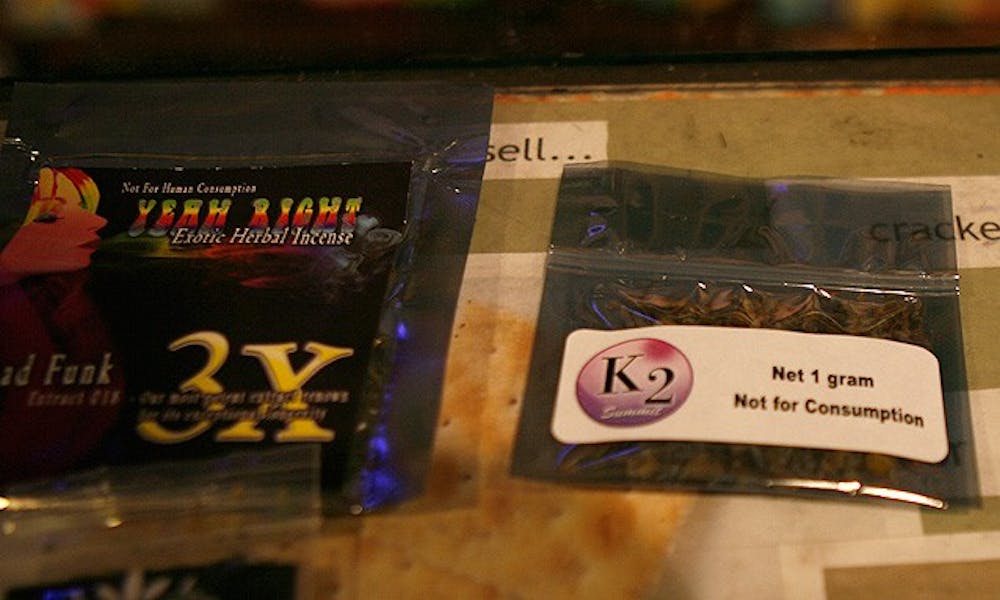For North Carolina residents, the ability to smoke “legal marijuana”—a substance known as K2—and similar substances may soon come to an end.
State Sen. Don Vaughan, D-Guilford, introduced a bill in the new session of the North Carolina General Assembly last week to outlaw synthetic cannabinoids, the active ingredient in K2. The bill notes that the synthetic chemicals are 100 times more potent than THC, the active ingredient found in marijuana, and that the abuse of the substances is “gaining in popularity at an alarming rate” among college and high school students.
K2, which is also sold under the names spice, demon or genie, is commonly labeled as incense but has been increasingly used as a synthetic and legal alternative to marijuana. K2 has recently been reported to have more serious side-effects than marijuana, said Ryan Butler, Vaughan’s legislative director, who added that the studies were what had originally alarmed Vaughan and prompted his introduction of the bill.
“Sen. Vaughan had heard the reports that the ‘high effect’ is the same as many other controlled substances,” Butler said. “Research also suggests that [K2] may have long-term effects.”
The U.S. Drug Enforcement Administration issued a statement Nov. 2010 regarding its intent to temporary control five chemicals for at least a year so that the substances can be further studied. Since that time, cities and states throughout the country have pursued outlawing the substances.
If the bill is passed, synthetic cannabinoids will become a Schedule I controlled substance—as is marijuana— and would become illegal Dec. 1. Twenty-one states in total have introduced legislation concerning synthetic cannabinoids so far in 2011, according to the National Conference of State Legislatures.
“[The bill] has received broad public support.” Butler said. “People fear that kids will not know that K2 is stronger than marijuana and may be more dangerous.”
The K2 compound was first created in the lab of John Huffman, an organic chemist at Clemson University, in the mid-1990s. At that time, the effects of the substance were tested on mice who were euthanized at the end of the experiment.
The long-term repercussions for humans relatively unknown. K2 is known to produce side affects that are not associated with marijuana use. These can include anxiety, increased heart rates and blood pressure, panic attacks and paranoia, according to the DEA.
On campus, levels of support and opposition vary among students.
“Synthetic drugs should be banned because they are synthetic and are transformed into a completely crippling product,” freshman De’Shaun King said.
However, freshman Prashanth Kamalakanthan, who admitted to trying the substance once, said he disagreed with the ban.
“The illegalization of K2 would be like prohibition [of alcohol in the 1920s],” Kamalakanthan said. “All it will do is drive [the drug] underground.”
Get The Chronicle straight to your inbox
Signup for our weekly newsletter. Cancel at any time.

